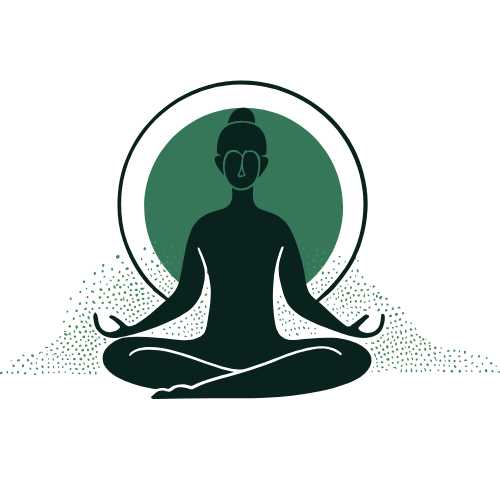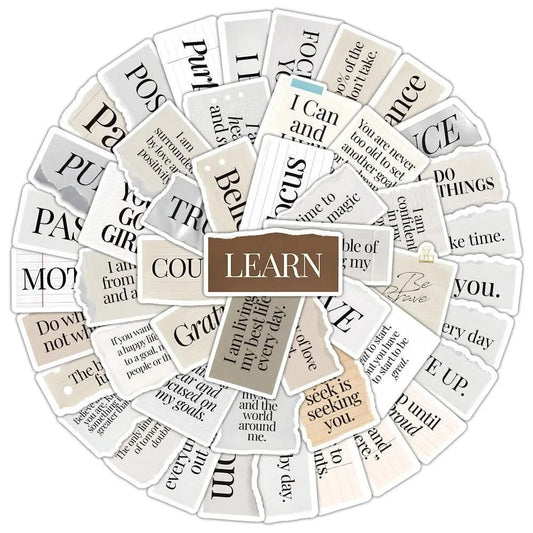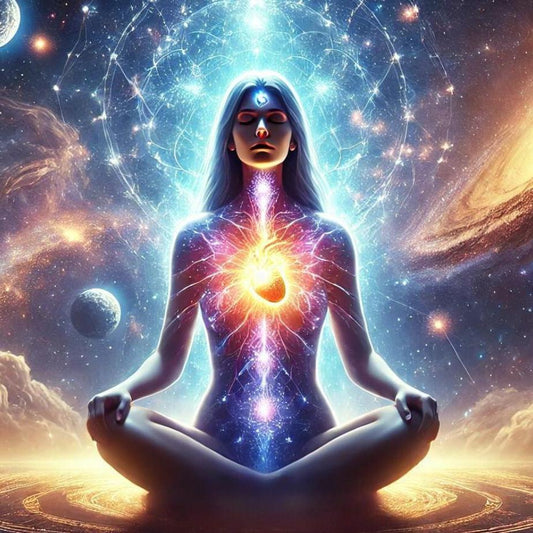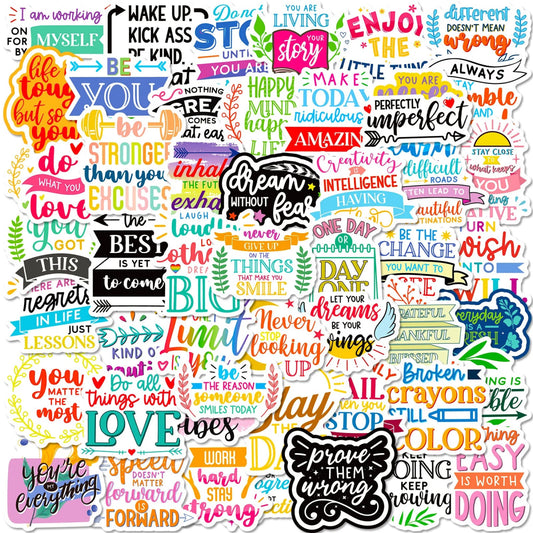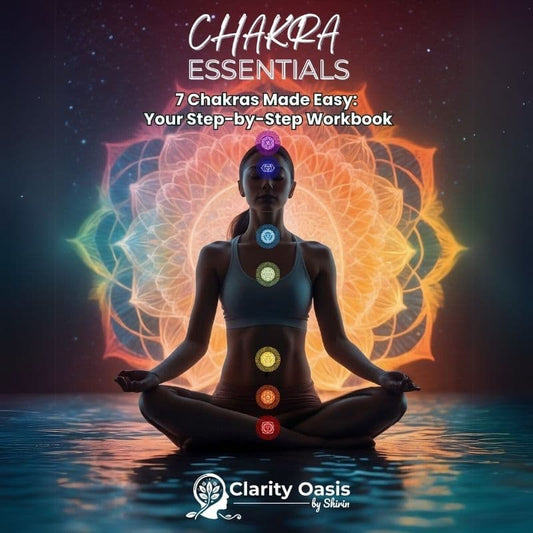
Have you ever felt persistently confused, emotionally unsteady, or out of sync with your inner guidance? These could be signs of a blocked third eye chakra, the energy center responsible for intuition and clarity. Struggling to focus, battling racing thoughts, or feeling disconnected from your instincts often points to an imbalance. You might also experience physical symptoms like frequent headaches, tension in your forehead, or restless sleep patterns. Such blockages can disrupt your sense of direction and harmony, but they also offer an opportunity for growth. Ready to uncover the six key symptoms of a blocked third eye chakra and discover how to restore balance and clarity? Let’s dive in.
Key Takeaways
- Difficulty concentrating, persistent confusion, and mental fog are common cognitive challenges indicating a blocked third eye chakra.
- Emotional instability characterized by swings, doubt, and insecurity often suggests disconnection from the third eye chakra.
- Physical symptoms such as headaches, neck discomfort, and fatigue may signal a blockage in the third eye chakra.
- Lack of intuition, second-guessing instincts, and increased anxiety are signs of a blocked third eye chakra.
- An overactive imagination leading to excessive daydreaming and distraction can indicate an imbalance in the third eye chakra.
Overview Of Third Eye Chakra Blockage Symptoms
1. Persistent Confusion
Persistent confusion can feel like a mental fog, making it hard to focus, articulate your thoughts, or trust your decisions. You may find yourself second-guessing everything, which can lead to frustration and indecision. This mental haze is often linked to an imbalanced third eye chakra, which plays a vital role in fostering clarity and intuitive insights.
An underactive third eye chakra can disrupt your ability to interpret dreams or connect with your inner guidance. Exploring dream analysis can be a valuable tool to navigate this confusion. By reflecting on recurring symbols and themes, you can uncover hidden messages from your subconscious and address unresolved issues.
To clear the mental fog, incorporating mindfulness practices is key. Meditation, journaling, or even moments of intentional stillness can help calm your mind and create space for clearer thinking. These practices not only promote relaxation but also support the restoration of mental clarity.
Acknowledging persistent confusion as a signal for rebalancing your energy is the first step to reconnecting with your intuition. Embrace this process with patience, knowing that as you nurture your mind and spirit, clarity and confidence will naturally follow.
2. Lack of Intuition
When you frequently second-guess your instincts or find yourself over-analyzing even simple decisions, it may point to a blocked third eye chakra. This disconnection from your intuition can leave you feeling lost, uncertain, and overly reliant on external validation.
Difficulty Trusting Instincts
One of the most evident signs of a blocked third eye chakra is a struggle to trust your gut feelings. Instead of confidently following your inner guidance, you might hesitate, questioning every nudge from within. This lack of trust often leads to seeking constant reassurance from others, which can reinforce self-doubt.
Your third eye chakra governs clarity and spiritual awareness, and when it’s blocked, you may ignore or dismiss the quiet wisdom trying to guide you. Reflect on how often you brush aside your instincts in favor of external opinions. Recognizing this pattern is the first step toward reclaiming your intuitive connection.
Mindfulness practices, such as meditation or journaling, can help restore this connection and activate the third eye. As you create space for self-reflection, you’ll gradually rebuild trust in your inner wisdom and regain confidence in your decisions.
Overthinking Decisions
A blocked third eye chakra can also lead to overthinking, turning even small decisions into overwhelming challenges. You may find yourself stuck in an endless loop of weighing options, analyzing outcomes, and fearing mistakes. This cycle of over-analysis not only drains mental energy but also erodes your confidence in making choices.
Without a clear connection to your intuition, decisions become more complex than they need to be. Everyday tasks—like selecting a meal or planning your day—can feel exhausting, leaving you mentally exhausted.
Breaking free from this cycle starts with quieting the mental noise. Meditation, mindfulness, or journaling can help declutter your thoughts, allowing clarity to emerge. Over time, these practices can re-establish your intuitive flow, making decision-making a more natural and effortless process.
3. Difficulty Concentrating
Difficulty concentrating can be a clear sign of imbalance in the third eye chakra. You may feel easily distracted, needing help to focus on tasks that once held your attention. This mental scattering can leave you feeling overwhelmed and unable to organize your thoughts effectively.
Restoring Clarity Through Mindfulness
Incorporating mindfulness practices into your daily routine can help recenter your mind and improve concentration. Simple techniques, such as deep breathing or staying fully present during activities, can ground your thoughts and enhance focus.
Chakra-Specific Meditation
To address the root cause, consider meditations designed to balance the third eye chakra. During your practice, visualize a glowing indigo light radiating at the center of your forehead. This visualization not only helps restore balance but also strengthens your mental clarity over time.
Tracking Progress
As you incorporate these practices, pay attention to any improvements in your focus. Noticing even subtle shifts can affirm that you’re on the right path.
Remember, unblocking your third eye chakra is a journey that requires patience and self-compassion. With consistent effort, you can reclaim your ability to concentrate and experience a more centered, clear state of mind.
4. Overactive Imagination
An overactive imagination can indicate a blocked third eye chakra. You might find yourself frequently lost in vivid daydreams or mental scenarios that feel more real than the present moment. While imagination is a powerful tool, excessive or uncontrolled thinking can leave you feeling ungrounded and disconnected.
Signs of an Overactive Imagination
- Daydreaming: You’re often caught in elaborate fantasies that distract you from daily life.
- Difficulty Channeling Creativity: You need help to turn your imaginative ideas into actionable steps.
- Erratic Dreams: Vivid or overwhelming dreams may interrupt restful sleep, leaving you tired.
- Distorted Perception: It becomes challenging to distinguish between reality and your thoughts, causing confusion or anxiety.
Balancing Techniques
To manage an overactive imagination, consider mindfulness and grounding practices:
- Meditation: Focus on the present moment to calm racing thoughts. Visualize a steady indigo light at your forehead to balance this chakra.
- Journaling: Write down your thoughts to organize and understand them better.
- Mindfulness Exercises: Engage in activities that root you in the now, such as deep breathing or yoga.
Harnessing your imagination rather than letting it control you allows you to use your creativity effectively without losing balance.
5. Emotional Instability
When imagination spills over into your emotional landscape, it can create instability. You may feel emotionally reactive, swinging between highs and lows without clear triggers.
Emotional Imbalance Indicators
- Mood Swings: Sudden emotional shifts from exhilaration to anxiety.
- Overwhelming Feelings: Intense emotions that seem disconnected from reality.
- Difficulty Processing Emotions: Struggling to understand or articulate what you’re feeling.
Ways to Regain Emotional Stability
- Reflective Meditation: Take time to sit quietly and observe your emotions without judgment.
- Grounding Practices: Spend time in nature or focus on your senses to anchor yourself.
- Self-Awareness Techniques: Use journaling to track emotional patterns and triggers, fostering understanding.
Balancing your emotional energy restores your sense of clarity and peace, which is essential for a healthy third eye chakra.
6. Physical Symptoms
Physical symptoms often accompany a blocked third eye chakra, signaling the need for attention. These may include:
- Vision Issues: Blurred or foggy eyesight.
- Headaches or Migraines: Tension around the forehead and temples.
- Sleep Disturbances: Insomnia, vivid dreams, or nightmares.
- Sinus Issues: Frequent colds or sinus pressure.
Steps for Relief
- Energy Healing Practices: Try Reiki or other forms of energy work to restore balance.
- Breathing Exercises: Use deep, rhythmic breathing to relieve physical tension.
- Sleep Hygiene: Create a calming bedtime routine to improve sleep quality.
Listening to your body’s signals and addressing these symptoms can help unblock the third eye chakra, promoting a healthier flow of energy and overall well-being.
Frequently Asked Questions
How can a blockage in the third eye chakra affect the crown, heart, throat, root, solar plexus, sacral chakras, and the physical body?
A blockage in the third eye chakra can disrupt the flow of energy throughout the entire chakra system, leading to imbalances in the crown chakra, heart chakra, throat chakra, root chakra, solar plexus chakra, and sacral chakra. This can manifest as physical symptoms like fatigue or headaches, emotional instability, and challenges in spiritual connection, making it essential to clear the blockage for overall well-being.
How Can Meditation Help Unblock the Third Eye Chakra?
Imagine a serene landscape, where you embrace mindfulness techniques and visualization exercises. These practices clear mental fog, enhance intuition, and awaken your inner vision, allowing you to connect deeply with your third eye chakra's energy of higher consciousness and spiritual realm.
How Do Blocked Chakras Affect Your Physical and Emotional Health?
A blocked third eye chakra can lead to physical symptoms like headaches or eye strain. Emotionally, it may cause a lack of clarity and spiritual awakening.
How Can Chakra Opening Symptoms Indicate a Blocked Third Eye Chakra?
Early symptoms of opening of the third eye such as dizziness or heightened sensitivity can signal third eye chakra is blocked. This blockage often prevents the flow of energy from the lower chakras to the higher chakras like the crown chakra (sahasrara).
How Can You Heal Your Third Eye Chakra Through Spiritual Practice?
To heal your third eye chakra, engage in chakra affirmations and meditative practices that focus on clearing blockages. Incorporating spiritual practices and balancing your root, sacral, and heart chakras can enhance your chakra opening and facilitate healing.
What Are the Symptoms of a Blocked Third Eye Chakra?
When your third eye chakra (ajna chakra) is blocked, you may experience mental confusion, lack of intuition, and difficulty focusing. Emotional symptoms can include feeling disconnected from your spiritual connection or purpose.
Conclusion : Third Eye Chakra Blockage Symptoms
Experiencing these symptoms may signal a blockage in your third eye chakra, obscuring your ability to see clearly both within and beyond. This chakra, vital for intuition and insight, requires care and attention to function harmoniously. Through practices like meditation, mindfulness, and grounding, you can dissolve the energetic barriers, activate your third eye chakra and reconnect with your inner wisdom.
As you work to restore balance, trust the process. Each step brings you closer to clarity, intuition, and a deeper understanding of yourself. Embrace the journey—it holds the potential to transform your perspective and illuminate your life's path.


